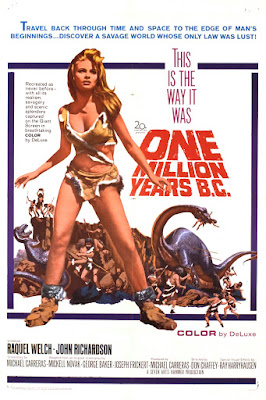 |
| The Hell by Hieronymus Bosch |
America is regressing. A sweeping statement, certainly, but
one that I think is shared by more people than I ever thought possible when I
was forty years younger. This isn’t going to be a rant crying for the good old
days. That argument is just a wistful, wishful, wasteful, unsupported speed
bump, created in our misty, imperfect, memories to divert attention from what
needs to be done in the here and now, not what wasn’t done in the then and
there. I don’t want to go back…I want desperately to move forward. But that may
no longer be possible.
When I say we are regressing, I don’t mean we are going
back to anyplace we’d even recognize—for better or worse. I mean we are
stumbling backward, blindly, toward a dark, unknown place, a place so
unfamiliar and unimaginable as to inspire sleepless nights, fearful days, and
dread for the days to come before we get to the crumbling rim of that pit.
Forty years ago I expected we would by now be an integrated
society, less bigoted, less judgmental, less fearful. There is no way we would
have forecast a resurgence of the Klan, of Nazis, the rise of skinheads, the
descent of decency and comity. How could we have predicted the mass shootings,
the (fill in the blank) Lives Matter movements, the loss of innocence. A wall
of denial along our Southern border was not on our radar in 1977; yes,
immigration was an issue, and there was a barrier, but targeting children and
taxpaying, job-holding immigrants for deportation at the point of a gun? No,
that was not in our 1977 vision.
It was my belief in 1977 that we would be benefiting more
from the fruits of our education systems than we are in 2017. We believed the
same ingenuity and sense of pride in exploration and discovery that took us
beyond our Earthly boundaries in the 1960s and ‘70s would manifest themselves
in a general, publicly-embraced desire to continue pushing the boundaries of
the world around us to the benefit of all. Today, the cost of higher education
eclipses any number we might have imagined in 1977, and the debt shouldered by
students and parents is punishing them for their aspirations. To the deniers,
science education—even higher-education itself—is worthless now, and their
voices are getting louder.
There was no reason, 40 years ago, to think that healthcare
in America would be maliciously circumscribed by a mean-spirited, vindictive
president and Congress. There was no way to know then that the Supreme Court
would favor unlimited funding to political campaigns, a decision that would
change forever the electoral process and disenfranchise the idea of one citizen,
one vote.
I had no reason forty years ago to believe the nuclear
family as we knew it would dissolve, disperse, and then reconstitute itself in
a form where children return home as semi-functioning adults, grandparents
become parents, and parents become children cared for by children.
There was every reason to believe that the institution of federal
government would have lifted itself above the morass of the Cold War, Vietnam,
Watergate, and civil unrest and would be working to improve the state of the
nation, and not oversee without comment America’s slumping, backward stumbling
toward the pit. I guess you had to be there to understand why I would say that,
but there were men and women in the Congress—of both parties—who actually stood
for serious values, and voiced, without apology or dissembling, their concerns
and their ideas for solutions. Really, such people did exist. Reaching across
the aisle was a good thing, not a thing to be scorned and dismissed.
While the threat of incoming missiles remained in 1977, I
don’t think any of my peers anticipated that threat coming from North Korea in
2017, nor would we have imagined in our wildest dreams we would have a
president who recklessly welcomes such an attack via Twitter and cryptic,
smirking asides.
Forty years ago, we couldn’t imagine that a soldier could
be rotated more than half-a-dozen times into and out of war zones, purposefully
over-exposed by the Defense Department, the Congress, and the
commander-in-chief to the mangling horrors of IEDs, and lives forever changed
by amputations and traumatic brain injuries. It was bad enough that Vietnam-era
warfighters had to endure a year or two—perhaps three—of service in combat, but
today, our putative leaders are cranking the grinder of war ever faster,
pushing more fine young men and women into the feeder, with results that are
truly unholy and immoral.
Forty years ago there was no 9/11 on our horizon, no
prediction of terrorism—foreign or domestic. We were respected by our allies,
respected, grudgingly, by our adversaries. There was no way our 1977 selves
would have forecast the doubt, the mistrust, the sideways glances of our
friends across both oceans, and it pains many of us to see those looks and hear
those whispers. Forty years ago, we would not have dreamed that a Secretary of
State would stand for such embarrassment.
Forty years ago, we could not have conceived of a
presidential candidate so filled with wack-a-doodle ideas, insufferable hubris,
and disdain for anyone not male, white, and wealthy. Not since George Wallace’s—"segregation now, segregation
tomorrow, segregation forever"—Jim Crow redux had we experienced
a candidate embraced by a vocal minority of Americans who stomped and cheered
at the idea of making the nation great again—but only in their mold.
That failed businessman entered the Oval Office not on the
popular vote, but on the rusting flatbed pickup of an arcane set of Electoral rules.
Those Electors dismissed the public will in favor of a B-grade television
buffoon whose misogynistic, bigoted, xenophobic, self-aggrandizing,
self-inflating, self-delusional and moronic lunacy relishes the idea of shoving
us toward, not away from, the pit of oblivion.
Forty years ago, we could not have imagined the fall we are
now on the verge of taking.











